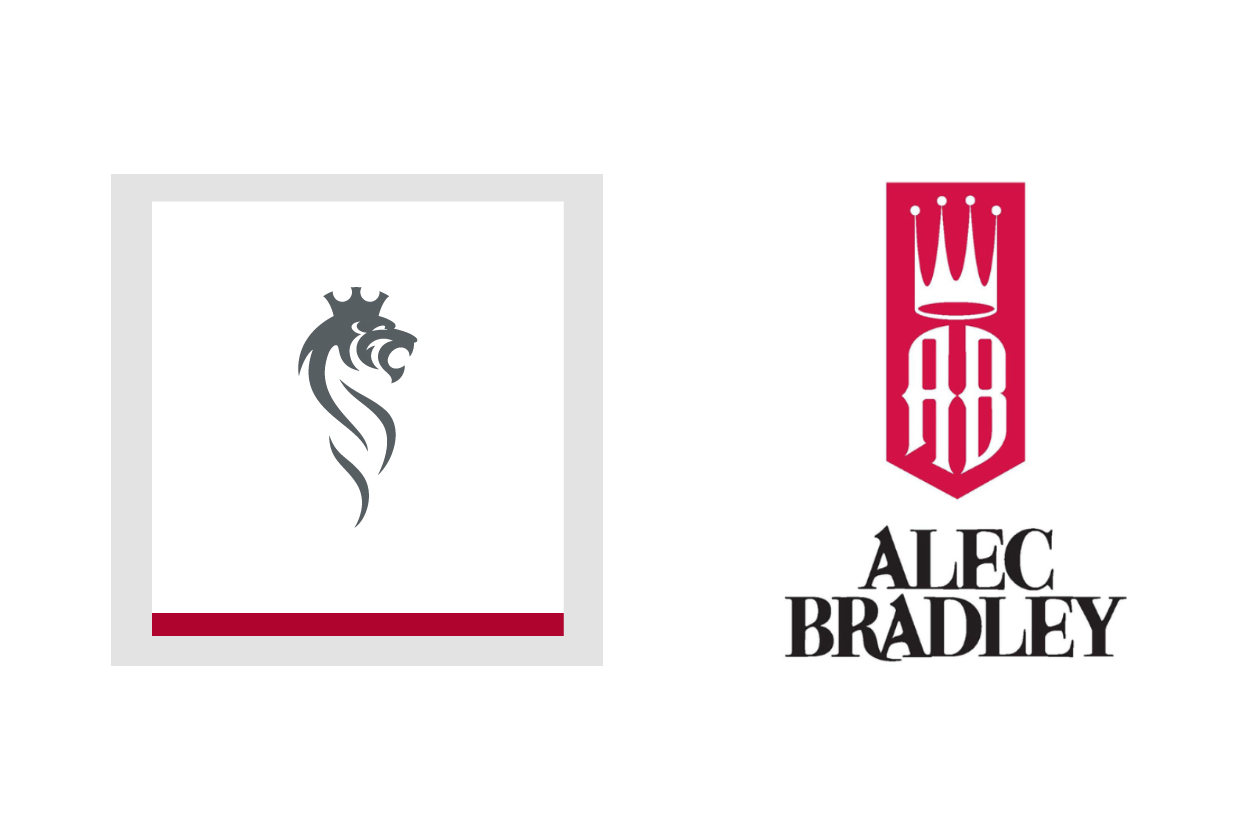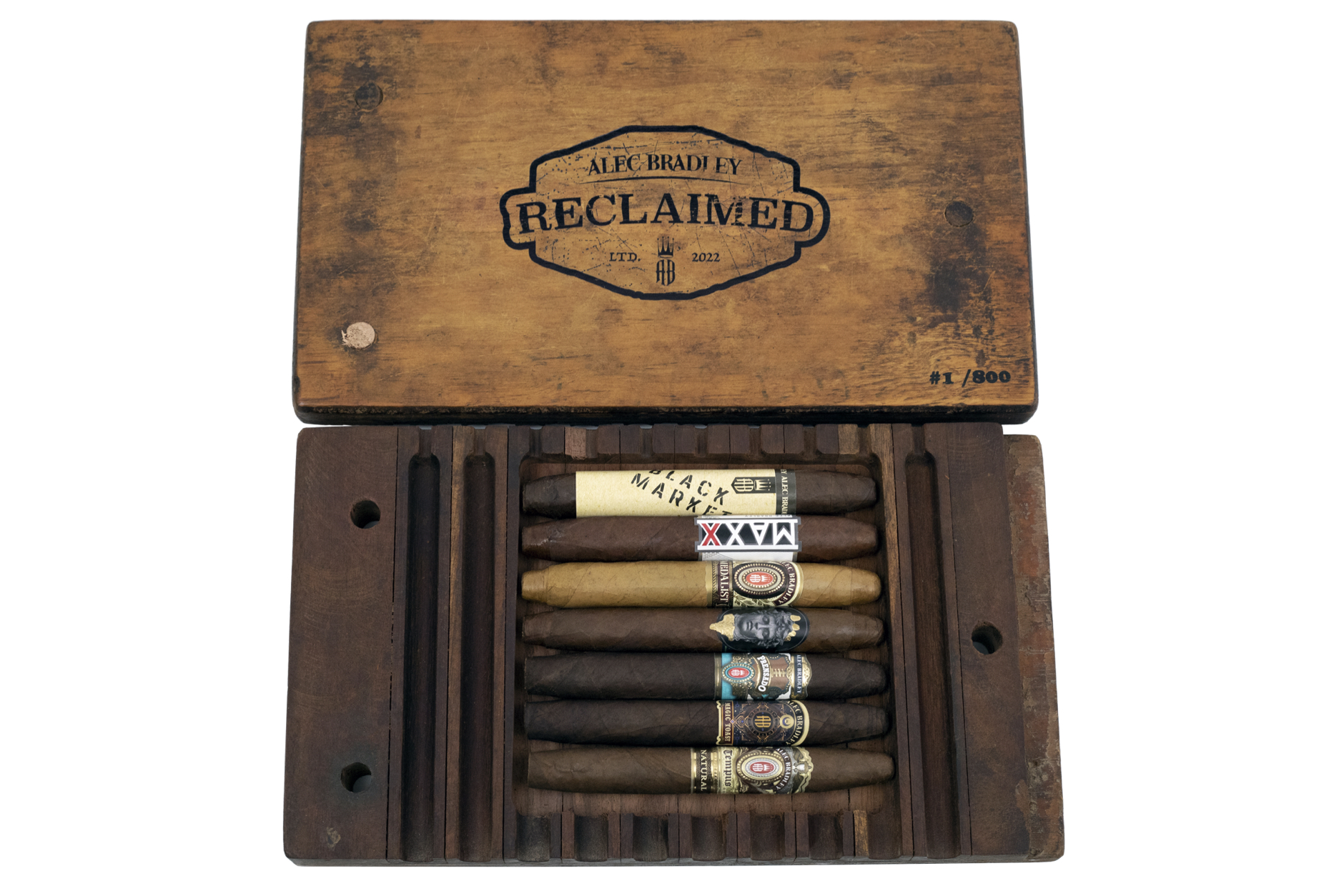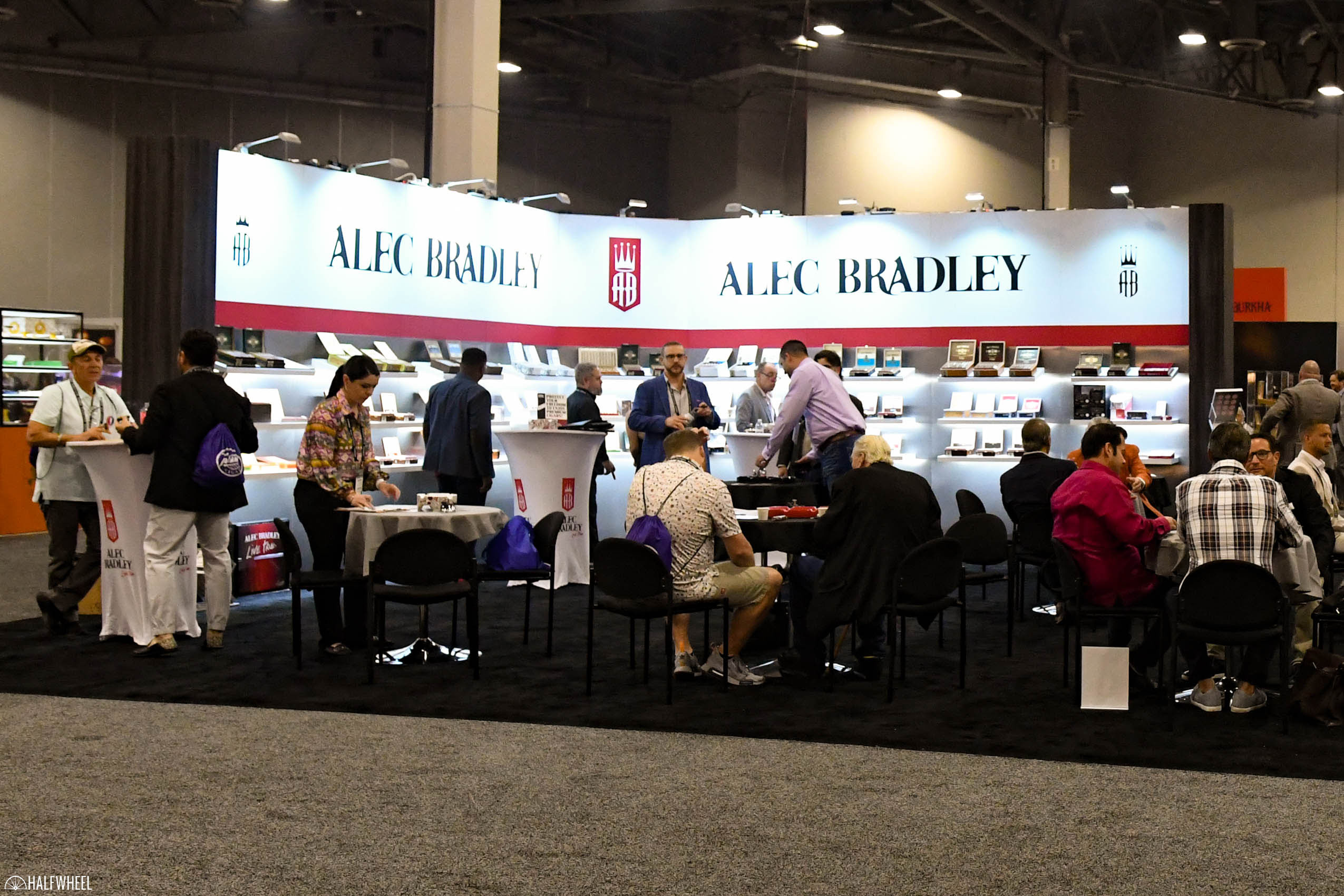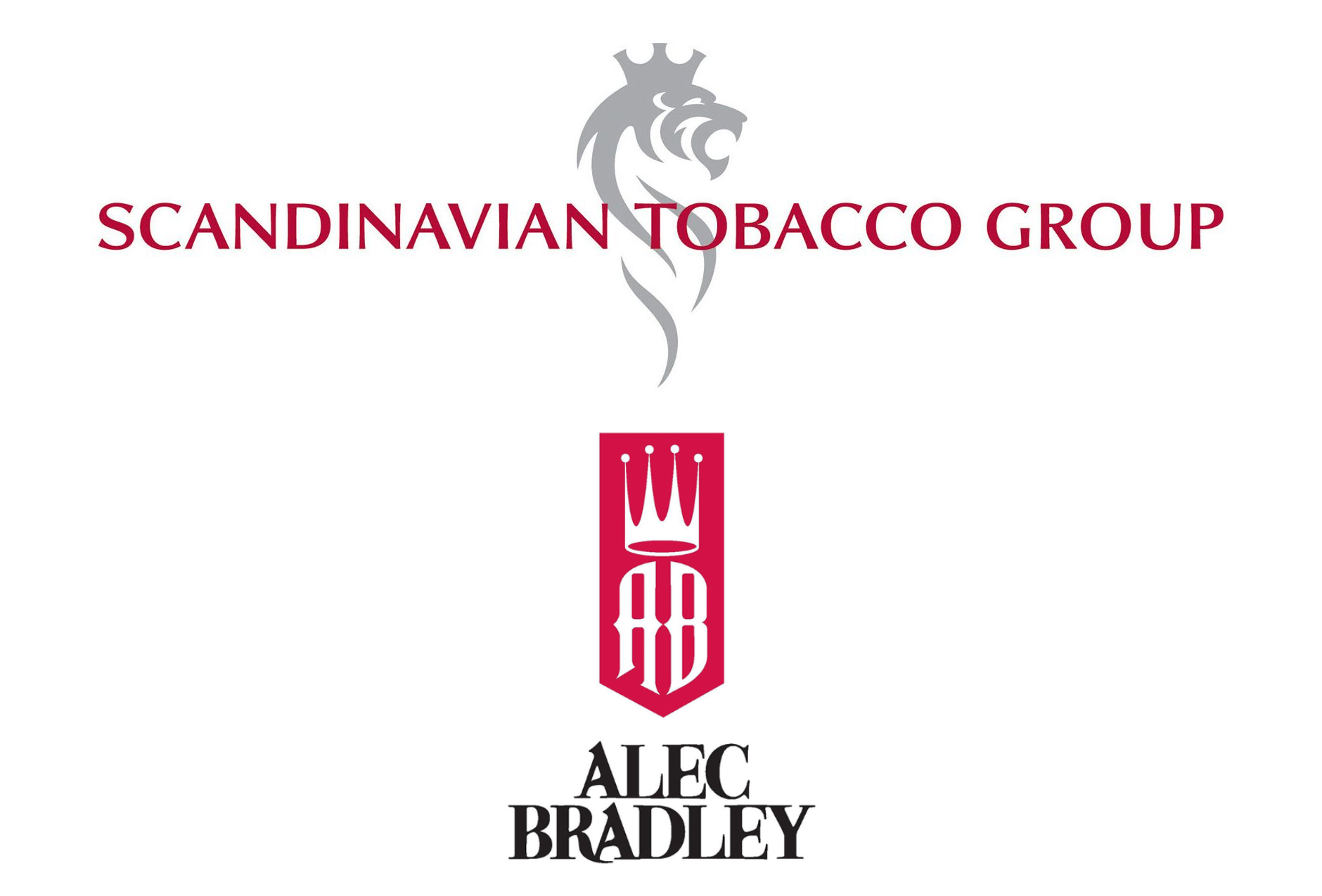Earlier today, Scandinavian Tobacco Group—the owner of Cigars International, General Cigar Co., Thompson and others, announced that it was purchasing Alec Bradley for DKK 500 million, roughly $72.5 million.
As I oftentimes do when big news stories happen in the cigar business, here are some thoughts on what took place and what it might mean.
1. Credit to Alan Rubin
In the 1990s, Rubin sold his family’s cabinet fasteners business and entered the cigar business. That’s two exits in two different businesses—I don’t think that should be overlooked in any way.
Similarly, Ralph Montero, Alec Bradley’s evp, deserves recognition. For more than two decades, Montero has worked somewhat in the shadows at Alec Bradley and is credited by Rubin with helping him figure out the cigar production in the early days of the business. There is good and bad of selling a business, but most companies don’t sell. When a buyer and a seller can come to an agreement—especially one that looks fair—I think the sale should be celebrated as an accomplishment. Most of the cigar companies we write about will die before they are sold, that’s not the case here.
2. Why STG Did This Deal
Here’s a line from STG’s 2021 Annual Report:
Mergers and acquisitions are part of Scandinavian Tobacco Group’s DNA. We are based on mergers and acquisitions and it remains an integral part of our Rolling Towards 2025 strategy.
STG has made more acquisitions than any other cigar company in the last 10 years and I imagine it will continue to do them.
This is the sixth acquisition in little more than five years:
- January 2018 — Thompson Cigar
- July 2018 — Peterson Pipe Group
- January 2020 — Agio
- November 2021 — Moderno Opificio del Sigaro Italiano
- June 2022 — Room101
- February 2023 — Alec Bradley
As for why Alec Bradley, I suspect there are a number of factors I am unaware of, but here are some that stand out to me:
- There Aren’t Many $70 Million Cigar Companies — Yes, $72.5 million would be enough to overpay for dozens of different cigar companies, but I doubt there are that many cigar companies that have a valuation of around $70 million. I don’t know if STG was giving marching orders by its board to go out and spend $70 million, but I do think there are limited options if you wanted to spend between $50-100 million on a premium cigar company.
- STG Already Does Good Business With Alec Bradley — Based on initial reactions from various STG competitors, some of them are under the impression that a sizable amount of Alec Bradley’s business is with STG’s retail businesses, i.e. Cigars International and others. If that’s true, this makes this deal not only more attractive because of the extra margin but also makes projections much more accurate than some other potential deals. Those accurate projections make the deal safer for STG. The company inevitably knows that if everything about Alec Bradley were to stay the same—which it’s not—it would take X number of months for the deal to pay for itself.
- Sales > Infrastructure — Just a guess here, but I think STG was probably more on the hunt for purchasing a sales operation than a tobacco operation. Alec Bradley’s lack of infrastructure—the company’s Fort Lauderdale headquarters is not part of the deal—makes it a great example of plug-and-play versus trying to onboard a fourth cigar factory.
3. STG is Beholden to its Share Price
Outside of Cubanacan, which has turned itself into a penny stock, STG is the only publicly-traded premium cigar company I know of. This makes its business decisions radically different than its competitors. STG’s top metric is not revenue, profit, margin, free cash flow, cigar ratings, customer satisfaction or even its dividends—it is share price.
STG is traded on the NASDAQ Copenhagen, meaning five days per week there’s an updated ticker that anyone in the world can access that let’s you know in real-time how STG’s shareholders think of the job that it is doing. That is not how things work at Drew Estate. For those familiar with publicly-traded tobacco companies, you are aware of how complicated and infuriating this can be at times. Some funds and investors refuse to invest in publicly-traded tobacco companies out of ethical issues. Because of this, publicly-traded tobacco companies have a disadvantage compared to your average public company. This buyer’s market means that investors demand healthy dividends from tobacco stocks.
Unfortunately for STG, it is categorized as a tobacco company which means that its publicly-traded peers are oftentimes cigarette companies. There have been times when STG’s profitability has increased, all while its share price decreased. Imagine making your company more profitable but not enough to meet the demands of people that never set foot in your company’s offices.
In the case of the Alec Bradley deal, it’s important to understand—this is a business decision, one that STG believes in because of what it thinks it will do to its share price. Full stop.
4. Alec Bradley Sold for More Than I Would Have Thought
If you asked me on Jan. 1, 2023 how much I thought STG would pay for Alec Bradley, my extremely uneducated guess would probably be around $40 million. Part of that is because of STG’s reputation of making offers. Part of that is because Alan Rubin’s two sons have recently gotten involved in the business, presumably reducing the immediate need to sell. Most of it would be based on how uninformed I am of Alec Bradley’s business.
More than a month ago, I reached out to an STG official about a rumor I had heard that the company was close to acquiring another company. Truth be told, I could reach out every month about a rumor that STG is buying someone because there’s rarely a month that goes by where I don’t hear some sort of rumor about STG buying another cigar company. For whatever reason, this felt different. Shortly after that, other sources started reaching out. Most of them didn’t peg Alec Bradley as the acquisition target, but eventually, it seemed like if STG was going to do a deal of significance, it would be Alec Bradley.
In case the annual report wasn’t clear, STG hasn’t been shy about its interest in other companies. I’ve heard directly from owners of companies that claim to have met with STG about being bought. A consistent theme of these conversations has been that the offers have been pretty low, which makes sense, it’s a buyer’s market.
But when the numbers were announced for this deal, I was surprised.
$72.5 million for a company that did $25 million in revenue in 2021 seems fair. STG says Alec Bradley’s revenue and EBIDTA before special items improved in 2022 but did not disclose numbers. Add in the 24 percent EBITDA before special items number from 2021—this doesn’t seem like the lowball offers I’d heard STG was making.
It’s important to note that Alec Bradley does not own factories or farms, meaning that this was a deal for a business that buys cigars and then sells them for a profit, that businesses’ trademarks and salesforce, but little else.
5. Can STG Make This Acquisition Work?
The fact that STG paid $72.5 million says a lot. I’ve gotten multiple unsolicited responses from other cigar company executives that have all been the same message: STG paid a lot for Alec Bradley. I don’t think this is lost on STG’s executives that negotiated and approved the deal. So I think that means that STG wanted this in ways that probably haven’t always been true with other STG acquisitions.
I think that it’s likely that STG will put Alec Bradley in Forged’s portfolio joining other brands such as Room101, Diesel, Chillin’ Moose, and the non-Cuban versions of the Partagas, La Gloria Cubana, Bolivar and El Rey del Mundo. STG has tried numerous attempts at making a second salesforce to General Cigar Co.—more on that below—and I have to imagine that it moves this over to Forged rather than putting it alongside Cohiba, CAO and Macanudo within the General Cigar Co. portfolio. Agio’s premium cigars are also coming back, so that’s one more thing STG is going to have to figure out and I wouldn’t put it past STG to redivide up the whole catalog of brands again, in some way that makes the most sense.
It’s been quite some time since one cigar company acquired another cigar for this sort of price. The last time this happened is likely Davidoff’s purchase of Camacho in 2008. For those curious about why it would consider more recent deals as a similar example:
- CAO was acquired by Henri Wintermans and then eventually merged into the General Cigar Co. portfolio as part of a merger of assets between old STG and Swedish Match.
- J. Cortès purchased Oliva but J. Cortès was not a significant player in the premium space.
- Imperial Brands, plc sale of its stake in Habanos S.A. as well as Tabacalera USA was to an unnamed buyer not believed to have any previous role in the premium cigar space.
- STG’s deal to buy Agio was about mass-market cigars in Europe, not about Agio’s premium cigar business.
- Swisher purchased Drew Estate after launching Royal Gold Cigars, a premium cigar brand, but I’m guessing most of you don’t remember Royal Gold.
- Deals for Cusano, Room101, Toraño and others seem too small for this type of comparison.
Nearly 15 years, Camacho is still paying dividends for Davidoff, but only after Davidoff was forced to build a new factory, discarding the one it purchased as part of the deal, and completely redoing the portfolio of brands it purchased. I wonder whether Davidoff would have been better off taking the Camacho money and making five attempts at launching its own Honduran brand from the ground up and I think the same questions can be asked of STG here. Except of course point #3, STG’s shareholders are probably not down for the company to take seven $10 million attempts at making Forged into a company that does an extra $25 million in revenue per year.
6. That Thompson Acquisition Keeps Looking Better and Better
Nearly five years ago—coincidentally, the deal was announced during Day 1 of TPE 2018—STG announced that it was acquiring Thompson Cigar for $62 million. That deal looked really smart at the time: the number wasn’t as much as I would have thought, Thompson likely had the largest number of customers that STG wasn’t capturing through Cigars International, Thompson was one of the big four retailers, etc.
It’s looked better at just about every turn—imagine the number STG would have had to pay after the sales uptick during the first 18 months of the COVID-19 pandemic—but I think it looks even better today.
Factoring for inflation, $62 million in 2018 dollars is worth $73.8 million today. STG is paying $72.5 for Alec Bradley.
Would I rather have Thompson Cigar or Alec Bradley and $1.3 million in cash?
Yeah, I’d rather have Thompson Cigar.
Consumers of this site might scoff at that due to Thompson’s reputation with sometimes shady marketing practices and a focus on cheap bundle cigars, but Thompson as a business was an excellent operation and one of the few gems that really added value to STG’s cigar portfolio in a unique way. Then again, point #1 remains—shout out to Alan Rubin for getting this price.
7. What does this mean for Alec Bradley cigars?
In the short term, not much. If there are changes, I’d imagine they are good for consumers.
- For the immediate future, STG is not expected to change production of any existing blends. I wouldn’t expect this to last forever, but I don’t think STG Danlí will be making half of the Alec Bradley cigars by July. It’s also worth pointing out that STG (quietly) has a minority stake in Plasencia’s cigar business, which is likely the key producer of Alec Bradley cigars.
- It wouldn’t surprise me to see STG trim the portfolio and therefore put some cigars on sale.
- A small number of stores will probably get rid of Alec Bradley on clearance as some sort of protest. I would suspect this number to be closer to a half dozen than two dozen stores, but there’s at least one store that will do this.
That said, I do think that there’s a good chance the next Alec Bradley cigar comes from one of the three factories STG owns, either General Cigar Dominicana, STG Danlí in Honduras or STG Estelí in Nicaragua. While Room101, which STG acquired in June 2022, is continuing to work with other factories, I can’t see STG opting to send that business elsewhere on a consistent basis.
8. What Happens to the Alec Bradley Salesforce?
Unfortunately, not every part of capitalism is a great one. This is likely one of the not great parts. I suspect that STG does not intend to hire Alec Bradley’s sales team, or at not least most of it. I don’t know what it means for the company’s executives, but the fact that there wasn’t an explicit mention of STG retaining any staff is likely what you need to know.
Officially, STG won’t issue any statement about this until after the deal closes. But if past is prologue with STG acquisitions, the plan is to integrate the company into STG and maximize efficiencies, keeping a third salesforce around would be outside of the established playbook.
9. What does this mean for PCA and CRA?
STG’s General Cigar Co. is one of the four companies that publicly announced in January 2020 that it would no longer exhibit at the Premium Cigar Association’s annual convention and trade show due to a number of complaints. While General didn’t have a booth at the 2021 or 2022 trade shows—there was no 2020 trade show—its employees were there in 2021 in Room101’s small booth following the Room101 acquisition, which was announced less than 30 days before the trade show.
PCA’s trade show floor map shows Alec Bradley with a 30 x 50-foot booth for PCA 2023, which takes place in July. It sounds like the plan will be that something will be exhibiting in that space, though I’m fascinated to know what that looks like. I definitely don’t think it will be a scaled-down version of the booths that General Cigar Co. once used, but I also don’t see a scenario where STG promotes just Alec Bradley at the trade show. The more I think about this, the more I think General is going to take the existing Alec Bradley booth and put some new graphics on it and then have its Forged team in Las Vegas.
For the PCA, this isn’t good though I don’t think it’s a needle-mover one way or the other.
I want to be clear: STG’s overall thoughts about the PCA Convention & Trade Show have not changed.
The plan each year continues to be to not exhibit at the trade show. Of course, if STG keeps buying companies that are committed to exhibiting, perhaps this weird song and dance continues.
Alan Rubin is one of the board members of Cigar Rights of America (CRA), a cigar trade group that is largely funded by 10 family-owned cigar companies, including Alec Bradley. While I could see a scenario where General continues to donate cigars to CRA as a token of goodwill and also a separate scenario where Rubin is allowed to keep his board seat, I’d expect changes to the relationship between Alec Bradley and CRA. I don’t know how impactful that would be, but its worth pointing out.
10. At what point does an STG spin-off become something to pay attention to?
Perhaps STG has studied the issue and concluded that it needs to have two U.S. sales teams, essentially competing against one another, in order to effectively sell the already large and now growing portfolio of brands it has. This seems like a perfectly reasonable conclusion.
But it is weird that STG has two sales teams visiting the same accounts, particularly because it presumably could opt to shrink the territories that each salesperson covers and give those sales people the entire portfolio to sell. At some point—and Alec Bradley might be that point—it just might be too many brands for one person, even in a smaller territory. When you look outside the cigar world, it’s not uncommon for a single company to have different sales teams for its different brands, even if that means the same account is getting serviced by multiple employees. Though, there’s oftentimes clearer separation than just brands. It’s not like STG has one half of its salesforce sell cigars priced more than $12 while the other half takes the sub-$12 cigars.
Though I also wonder at what point does STG consider spinning off some of what it owns. I don’t think it will necessarily be the Forged portfolio or even in the cigar business, but I do think this is something to pay attention to in the medium-term. While I think STG will keep acquiring assets, at some point—as Swedish Match, the previous owner of Cigars International and General Cigar Co.—it will start to divest some of its assets.
11. Who’s next?
No idea, but my money is on STG announcing another acquisition in the next 18 months.
12. Does this deal include Lars Tetens?
Update — I should have doublechecked our internal notes. This topic originally stated that it had been six months since we were last told by Alec Bradley that the company was still actively reworking Lars Tetens. It turns out, it’s been 18 months. I’ve adjusted this to be more relevant.
It’s been at least 18 months since we’ve asked Alec Bradley what’s up with the Lars Tetens project following Rubin’s acquisition of the brand in 2019. Despite all the evidence to the contrary, Alec Bradley’s position at that time was that it was still reworking how to sell Lars Tetens cigars as part of Rubin’s acquisitions of the brand.
The key is that deal was described as Rubin acquiring Lars Tetens, not Alec Bradley acquiring the brand through a holding company called World 180.
13. How concerned should we all be with STG’s planned dominance?
Here’s a quote from Niels Frederiksen, STG’s ceo:
The acquisition of the Alec Bradley cigar business is another important step toward our ambition of becoming the undisputed and sustainable global leader in cigars.
Here’s another line from STG’s 2021 Annual Report:
We want to grow in handmade cigars. This is our primary investment focus and we will direct our efforts at driving growth across the business, specifically in North America
STG tried to be a part of the largest cigar M&A deal of the last decade, the $1.3 billion deal for Imperial Brands, plc’s premium cigar business which included half of Habanos S.A., the Cuban cigar company, as well as Altadis U.S.A. and JR Cigar, STG’s most obvious competition in America. I was told that it was also among the finalist to purchase Oliva Cigar Co., which was sold to J. Cortès in 2016.
Beyond just buying other companies, STG is also aggressively opening up new brick-and-mortar stores in the U.S. Last year, it said it wanted to open 6-8 new Cigars International stores by 2025, which would at least double the number of Cigars International locations.
STG is a cigar company run by business people, not a business run by cigar people. I mean no disrespect to anyone that works at STG—some of whom know multitudes more about tobacco than I ever will—but STG’s primary goal is not about making the best cigars in the world, it’s about maximizing profits for its shareholders. To be clear, there are many family-owned cigar companies who subscribe to this ethos, but STG has the resources—infrastructure, money and people—to execute this plan in a way that is different than other companies.
It’s here to make money, currently by selling cigars. If it happens to make the best cigars—not too long ago one of STG’s products finished #2 on halfwheel’s Top 25—then great, but that’s not the primary focus. I come to this conclusion not because of the cigars I’ve smoked, but because of the deals above. STG is employing a strategy that looks like one developed by people with backgrounds in finance, not one developed by people who stay up at night thinking about whether it’s going to rain too much next week in a tobacco field in Jalapa.
STG should be celebrated for its savviness, but everyone should have already had concerns about STG’s approach before this. Today is just a reminder that the train already left in the station and is very much at cruising speed.
For other cigar companies, STG wants to be your largest competitor and it’s willing to spend money to make that happen. This puts pressure on you for reasons that should be obvious.
For retailers, STG is your largest competitor. Cigars International, Thompson, CigarBid, Cigar.com, Cigora, PipesandCigars are not the end. There will be more online storefronts, more brick-and-mortar stores, more new strategies. While there have been some bumps at times, historically, STG—led by Cigars International—has proven that it knows what it is doing when it comes to cigar retail, I don’t see that changing in the long run.
For consumers, you want as many competitors as possible. Competition amongst sellers makes it better for the buyers.
I’m not advocating for some sort of boycott of STG. halfwheel is still going to write about the company and review its products. (In the interest of absolute disclosure, STG’s General Cigar Co. is a halfwheel advertiser.) However, if you are the owner of a business related to cigars, you cannot be unaware of what STG is doing and you should be thinking about how it will affect you, because STG’s plan for cigar domination is already impacting your business and that’s not going to stop.






